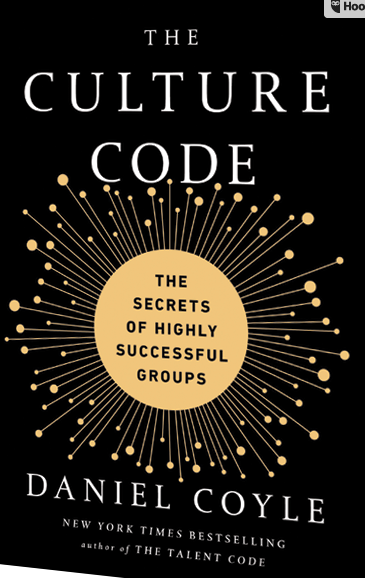Against Advice
The United States--and in particular its white Protestant-Work-Ethic subculture--is a fix-it culture. We like shows about remodeling houses and makeovers. We DIY and we read advice books and advice columns. We are helpers, which is great, and we are resourceful. But we also often give advice when love or support is more warranted, and we often totally confuse a hug with a hammer. This is kind of like seeing someone crying and handing them a roll of duct tape; it's a nice thing to offer but completely useless for the situation at hand. Advice is awesome in situations where a person has said, "I am really looking for advice." Or when two people are confronting the exact same practical problem, as in "I dropped my phone in my coffee!" + "Put it in a container of rice!" = "Thank you so much!"Advice feels good when you give it, because it feels like you are doing something, and that feels better to the giver that being powerless. We don't like not being able to do something. Also, once we do something, we feel better and we feel like we can then walk away. Advice is definite, decisive, and clear.However, unsolicited advice can feel bad to the receiver, because what it does is it often makes the receiver feel less cared for instead of more cared for. There's a hint of unintended judgment that comes with advice, as if the advisee is saying, "This problem is so simple and here's something basic that you probably should have thought of. Bye!" (Wait, I had never even HEARD of this thing you are calling yoga. Tell me more!! Hahahaha. Or my favorite, Remember to breathe. Oh crap I did forget and now I am dead.) The advisee doesn't mean for it to come off this way, but that's how it often feels. It also can be lonely to receive reams of advise, because everyone has dropped their duct tape at your feet and run but no one is around to really see or hear the complexity of what you're going through.
Advice is awesome in situations where a person has said, "I am really looking for advice." Or when two people are confronting the exact same practical problem, as in "I dropped my phone in my coffee!" + "Put it in a container of rice!" = "Thank you so much!"Advice feels good when you give it, because it feels like you are doing something, and that feels better to the giver that being powerless. We don't like not being able to do something. Also, once we do something, we feel better and we feel like we can then walk away. Advice is definite, decisive, and clear.However, unsolicited advice can feel bad to the receiver, because what it does is it often makes the receiver feel less cared for instead of more cared for. There's a hint of unintended judgment that comes with advice, as if the advisee is saying, "This problem is so simple and here's something basic that you probably should have thought of. Bye!" (Wait, I had never even HEARD of this thing you are calling yoga. Tell me more!! Hahahaha. Or my favorite, Remember to breathe. Oh crap I did forget and now I am dead.) The advisee doesn't mean for it to come off this way, but that's how it often feels. It also can be lonely to receive reams of advise, because everyone has dropped their duct tape at your feet and run but no one is around to really see or hear the complexity of what you're going through. Finally, it can be super-frustrating to receive the same basic advice over and over when you have years of experience in advanced problem-solving on the topic. Like, duh. Let me tell you the Ph.D. version of my Facebook post.I am reminded of all of this because I am reading a really excellent book about healthy group cultures called The Culture Code by Daniel Coyle in which he talks about how good organizations and teams create meaningful bonds. It's counter-intuitive in every way--honestly, if you think you know what's in this book, you're wrong--and he shows through research and example just how important seeing and listening and acknowledging and making space are to healthy communities. "Leadership" is not what we think it is.Anyway, you might be a fixer or advice giver. I am. I like to get shit done, and I as a product of my culture have often found a piece of basic advice rolling off my lips in response to a horrible life dilemma from a friend. Sometimes I've been present enough to stop that in mid-sentence and repair. So with that in mind, I offer a few things you can do to connect with friends with problems that aren't about giving unwanted advice.
Finally, it can be super-frustrating to receive the same basic advice over and over when you have years of experience in advanced problem-solving on the topic. Like, duh. Let me tell you the Ph.D. version of my Facebook post.I am reminded of all of this because I am reading a really excellent book about healthy group cultures called The Culture Code by Daniel Coyle in which he talks about how good organizations and teams create meaningful bonds. It's counter-intuitive in every way--honestly, if you think you know what's in this book, you're wrong--and he shows through research and example just how important seeing and listening and acknowledging and making space are to healthy communities. "Leadership" is not what we think it is.Anyway, you might be a fixer or advice giver. I am. I like to get shit done, and I as a product of my culture have often found a piece of basic advice rolling off my lips in response to a horrible life dilemma from a friend. Sometimes I've been present enough to stop that in mid-sentence and repair. So with that in mind, I offer a few things you can do to connect with friends with problems that aren't about giving unwanted advice.
Instead of Advice, Try...
- A heart emoji and "I'm thinking of you."
- Mirroring back an element of what a friend has shared that has struck you in particular, such as "You said that you're not sleeping much. That must be really hard." Just reflecting on what a person has said is a huge and powerful gift.
- Asking a question about what the experience is like. This might seem invasive but the friend will tell you if it is, and it's being curious about the actual experience so it might often be really welcomed!
- Asking the friend how you can support them or asking "What one thing is most hard right now?"
- Sharing your own experience if something like this happened to you and what you found to be most challenging
- Offering a specific thing you can think of to do to help the person and asking if that would actually be helpful or no
- Telling the friend that you have another friend who went through something similar and that you can put them in touch if that is something that might be appropriate
- Telling the friend they are doing amazing at juggling everything that is going on.
- Noticing something in the friend's life that you have admired to remind the friend of good things about themselves (but not in a "why aren't you grateful for all that you have?" kind of way)
- Checking in on the friend a day later to see if the person wants to vent or talk
What other things can we do other than advising? Any other ideas?